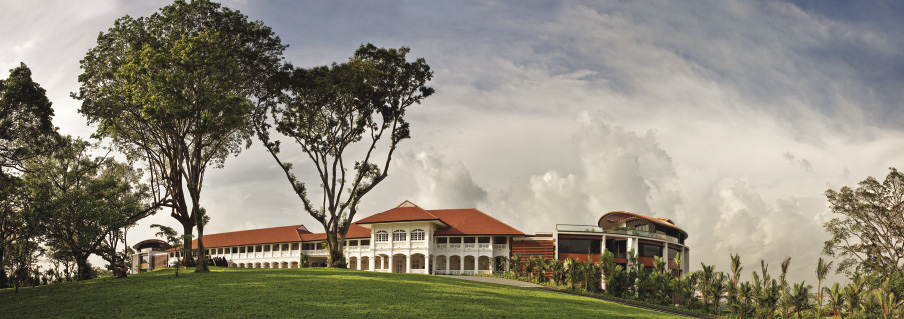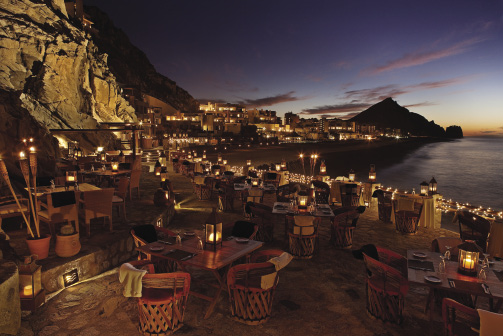- Home
- Media Kit
- Current Issue
- Past Issues
- Ad Specs-Submission
- Ad Print Settings
- Reprints (PDF)
- Photo Specifications (PDF)
- Contact Us

![]()
ONLINE

Schulze on Service
Editors’ Note
In 2002, Horst Schulze formed West Paces Hotel Group. Prior to that, he served as Vice Chairman of The Ritz-Carlton Hotel Company, after serving as President and COO. He had joined Ritz-Carlton as a charter member and VP of Operations in 1983. He was appointed EVP in 1987 and President and COO in 1988. He spent nine years with Hyatt Hotels Corporation, where he was a hotel GM, regional VP, and corporate VP. Before his association with Hyatt, he worked for Hilton Hotels. In 1995, Schulze was awarded the Ishikawa Medal for his personal contributions to the quality movement. In 1999, Johnson & Wales University recognized him with an honorary Doctor of Business Administration degree in Hospitality Management.
Company Brief
Established in 2002 and headquartered in Atlanta, Georgia, The West Paces Hotel Group (www.westpaceshotels.com) was founded by Horst Schulze along with several former Ritz-Carlton executives. The principals of the company leverage their hospitality experience to create value through superior service at luxury, world-class properties and conference centers in gateway cities and high-profile resort destinations around the world including AYANA Resort and Spa in Bali; Hotel 71 in Chicago; and The Cambrian in Switzerland. With the launch of two top-tier international hotel brands, Capella Hotels and Resorts and Solis Hotels & Resorts, The West Paces Hotel Group is looking to redefine the standards of luxury on a global scale.

Capella Singapore
Were you confident early on as to the West Paces model and how did you ingrain the methods you desired into the company’s culture?
It was difficult. When I worked with the larger companies, we had weekly department head meetings where all the discussions were of a financial nature.
I determined that, at a Capella hotel, we had to discuss service delivered to the customer every time we talk to our people. I had to change the mindset that existed in the people I hired from those other companies. Before we counted money, we had to create our product. We talked about nothing but service.
We started selecting the right employees with the right attitude. We refined that approach, which then became a process. So we became more sophisticated than a normal hotel when staffing – we approached it as a system.
You went into Ritz-Carlton with a method for doing it better. Was the thinking the same for the next venture?
No. The thinking was, I’m going to do it better and different. We didn’t start by looking for a hotel. I spent an extraordinary amount of money to analyze what the customer wants – the customers who used Ritz-Carlton and Four Seasons at their suites and club levels. Their mindset became clear – they had high expectations as to how they wanted to be treated.
Then we looked at what they wanted. An annoyance for them is a check-in/check-out time. So we figured out how to eliminate that. But we cannot offer that for big groups that check in at the same time, so we are limited to Capella transient only – and no more than 100 rooms, except in New York or Tokyo where we have more demand for transient business.
So we went with under 100 rooms, with exceptions, so we could do what they said they wanted. And we call them so we can find out what they want before they arrive. There is a huge limitation on it because locations that can support the rates a Capella must achieve in order to make financial sense are limited, but we decided to do it.
We agonized over whether the things we wanted to do could really be done. But we realized that fundamentally, the processes are the same except you have to adjust them to the market segment.
For a Capella, the market is X and we adjust to that but we individualize. So that is the new world of service – that expectation of individualization is in the mind of today’s luxury customer.

Capella Pedregal
Is it tough to convey that value is not always equated with price?
No. The customer generally gets it. Every month, in each Capella, we take a survey of intent to return, intent to recommend. Dusseldorf, for instance, is a 100-room hotel. We are 100 Euro over the next competitor. However, 94.2 percent year-to-date said that they would recommend us. So we gave real value, even though next door they could have a pretty good hotel with a well-known international name and pay 100 Euro less. But they cannot wait to come back and they recommend us.
In Cabo, it’s 96 percent, and in New York, we are over 90 percent. In the resorts, we have the ability to pamper the guests more because they stay longer. But in a city hotel like Dusseldorf, it is a very short stay, so getting that high a percentage is amazing.
There has been talk about the importance of having a flag on the hotel and it was suggested that independents were going to die. Has that changed?
It has changed because the way reservations are made today is totally different than in the past. The independent today can slowly fill the hotel.
But for the independent, the key is keep the customer. So it may take longer, but you can be just as successful if you have the staying power for three years. It is much easier today to compete with the chains than it was 20 years ago.
How big do you want the Capella brand to get?
We’re limited because we cannot go into locations where I could have gone with Ritz-Carlton, because with 100 rooms, we can’t afford that – we need to have a higher rate.
Globally, there are 70 cities in which we can be – there are locations you can add slowly. A few years ago, in China, there were two major cities – now there are five or six. And there was no resort – now there is Hainan Island. For Capella, we cannot have thousands of hotels like some of the big names in our business.
With a small footprint, we lend great value to peripheral location homes, condos, and so on. So it works, but some of the large chains are looking into that business, which other than for ego, makes no sense for them. For us, it’s about creating something excellent. But you make more money as a management company with a 600-room hotel.
We are less limited under the Solis brand, which can go on forever.
What is it that drives you to new challenges?
I believe that part of human happiness is to create excellence and be connected to it. Why would you sit and wait?•